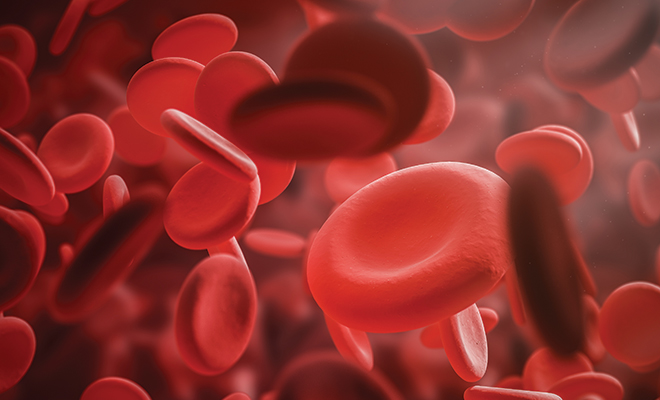
It’s in the Red: What Blood Tests Can Reveal About Your Health
You might be surprised to know that the little blood test your doctor ordered can tell you a world of information about your health. That tiny tube of dark red liquid can not only provide insight about your current health, but it can give you a peek into the future. This five-minute procedure is packed with proof and possibilities, and it is up to us to use it to our benefit.
Generally, when we have a blood test, about one to three teaspoons of blood are taken from our body through a needle. That’s not a lot of substance, but our doctors and analysts can get a wealth of information. Blood tests are generally performed at an annual checkup or physical and on the occasion when our doctor needs answers about any health issues we might be experiencing.
What can a single blood test tell us and our doctors? A lot. That’s why more than seven billion clinical lab tests are performed in the U.S. each year, providing critical information at a fairly reasonable cost. Specifically, blood tests can help doctors evaluate how well our organs like kidneys, liver, thyroid, and heart are working. They will assist diagnoses of diseases and conditions such as cancer, HIV/AIDS, diabetes and anemia, and indicate whether a patient has risk factors for heart disease. One can decipher if medications are working correctly and gauge how well a person’s blood is clotting
The most common type of blood test is a complete blood count, or CBC, which determines an overall health status. A CBC measures the types and numbers of cells in the blood, including red and white blood cells and platelets. It can also screen for disorders, assess how our organs are working and detect any nutritional deficiencies. If a patient is experiencing symptoms such as weakness, fatigue or bruising, a CBC can help diagnose conditions that might be causing them such as infections and cancers.
The future of blood testing is changing; cheaper, less invasive tests are on the horizon. Experts say new tests will revolutionize disease prevention as well as treatments. According to research from the University of Nottingham in the United Kingdom, a new blood test could help detect breast cancer up to five years early. The test looks for the immune system’s response to tumor cells by seeing if certain substances called tumor-associated antigens are detected before a person has any clinical signs of breast cancer. In their research, scientists found they could detect cancer with reasonable accuracy by identifying autoantibodies in the blood.
In late November 2019, Japanese company Toshiba announced a new blood test that can detect 13 types of cancer with almost 99 percent accuracy. Toshiba says the test, which can be completed with a single drop of blood, offers results in just a few hours. After a trial run, Toshiba and other partners involved will offer the test commercially.
Imagine a blood test that could spot whether you are aging too quickly! New research suggests it’s ready. Scientists from the Alzheimer’s Disease Research Center at Stanford University analyzed plasma from over 4,200 people between the ages of 18 and 95, and found a link between 373 proteins and aging. Leaders in the research say they’ve known for a long time that measuring certain proteins in the blood can give information about the future of someone’s health, but now their work is proving it.
Blood testing has come a long way in recent years. Certain blood tests can help a patient and physician clearly assess risks for health issues and find potential problems early. While many medical issues cannot be diagnosed with blood tests alone, they can help us learn more about our health. What happens after the test results are in is up us. By incorporating lifestyle changes such as diet and exercise and using medication if needed, we can use blood tests to our future health advantage. ■
Sources: www.nhlbi.nih.gov, healthcentral.com, acla.com and martinhealth.org.
Although doctors rely on CBC tests most often, other blood tests are also used to determine health status.
• Basic Metabolic Panel shows doctors the body’s fluid balance, levels of electrolytes such as sodium and potassium, and how well the kidneys are functioning. These tests usually are performed on plasma and can give doctors information about our muscles including the heart, bones and organ, such as the kidneys and liver.
• Prothrombin Time, also known as PT and Pro Time, this test measures how long it takes blood to clot.
• Lipid Panel is a group of tests performed to gauge cardiac risk. It includes cholesterol and triglyceride levels.
• Hemoglobin A1C is used to diagnose and monitor diabetes.
• Thyroid panel is a group of tests that help evaluate thyroid gland function, check hormones and help diagnose disorders







